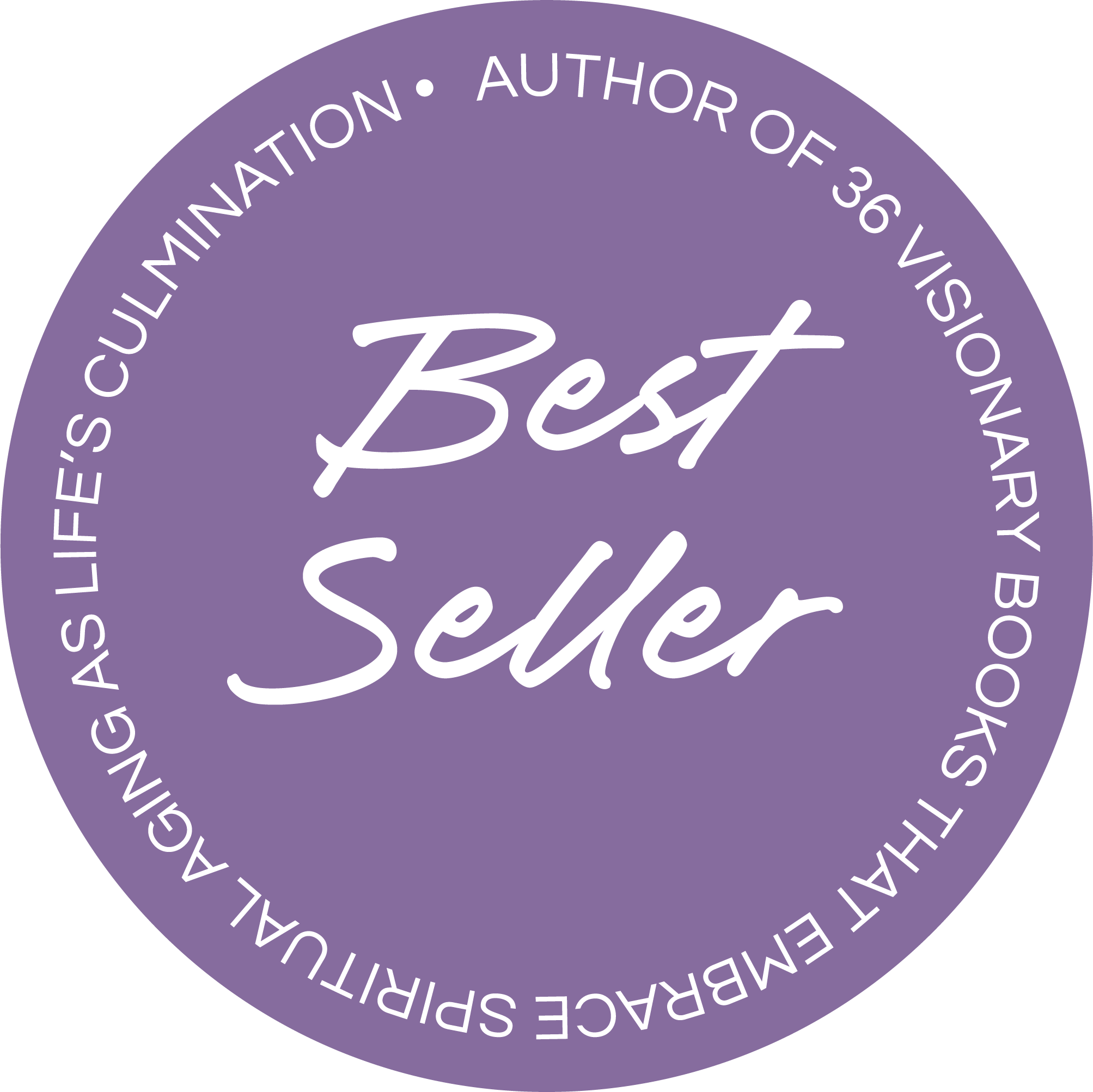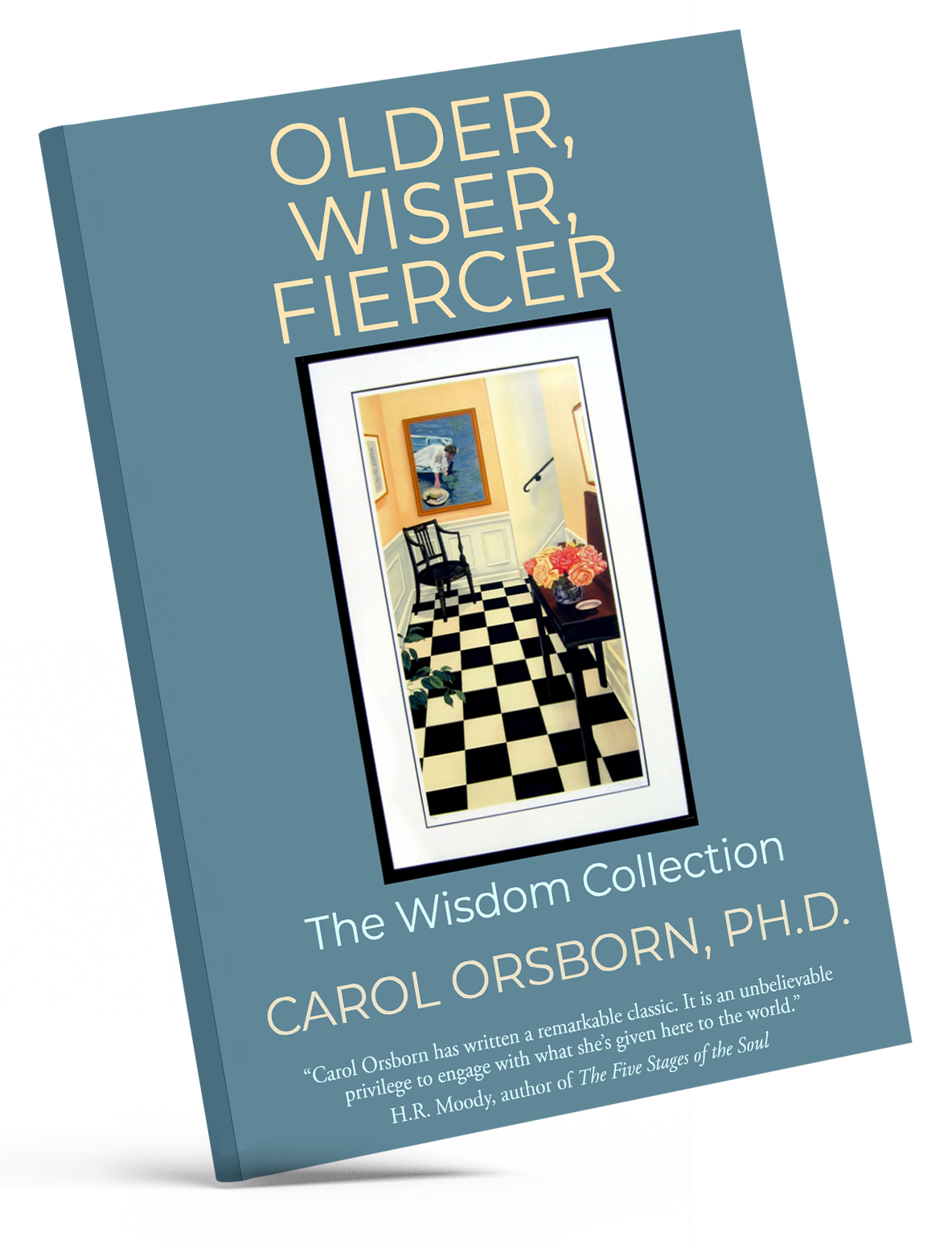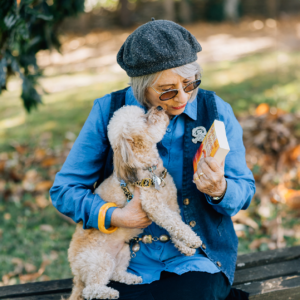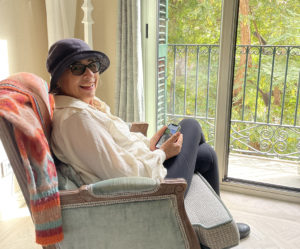AFTERWORD/COMMENTARY
Older, Wiser, Fiercer: The Wisdom Collection
Robert L. Weber, Ph.D
Life is full of paradox. Four years ago, Carol Orsborn and I launched the book we co-authored, The Spirituality of Age: A Seeker’s Guide to Growing Older, at The Harvard Bookstore. Our book confronts the shadow side of aging, finding spiritual opportunity in the challenges—including physical losses–associated with growing older. After working together for nearly 4 years, it was a night to celebrate the hard, long distance collaboration that birthed our book. But as Carol Orsborn, in this insightful new selection of her essays Older, Wiser, Fiercer: The Wisdom Collection, will be quick to remind you, even under the best of circumstances, growing older represents a disruption of how things used to be. “Any day can bring with it the realization that we do not have the power either to make things turn out how we’d expected, nor go back the way they were,” writes Carol.
And so it was that by the time our book tour took us to Nashville, I could barely stand for the presentation. Two weeks earlier, I’d injured myself during a Pilates exercise. Strain and pain took possession of my left hip and the symptoms continued with little relief. Subsequently, my condition was diagnosed as degenerative arthritis and osteoarthritis requiring hip replacement surgery. But that would have to wait, for, by tour’s end, just one month later, I was diagnosed with prostate cancer that also required surgery. This was a challenging time, to say the least, one in which I was hastened by circumstances to not only write about the paradox of aging, but to find myself doing first hand, deeper research about the spiritual opportunities that occur not in spite of, but because of aging. In her work of timeless wisdom, The Measure of Our Days, Florida Scott-Maxwell refers to this stance as becoming fierce with reality. But as it turns out, despite the gifts aging brings to us, the shadow side informs us that there can also be such a thing as too much reality.
Carol’s ongoing journey led to her literary connection and dialogue with the work of wise elders from across a broad spectrum of eras and disciplines even as my own journey has taken me deeper into the work of others that Carol appreciates, as well, especially the teachings of Richard Rohr and Ignatius of Loyola. Through our reading and on-going conversations, Carol and I have continued both our individual and mutually-supportive quests for answers, trying to make sense of our aging and the meaning and opportunities that are part of this universally, inevitable process.
Still, four years after our book tour, while it is not completely clear what fruit my recovery and convalescence will ultimately produce, I do know that it is already growing me in ways that are likely to positively impact my personal life as well as professional life as a psychologist. As Carol aptly observes: “By the time we are old, we have lived long enough to know what we and the world are capable of: the heights to which we can arise, and the depths to which we can sink. If at that point we allow ourselves to break open rather than shore up, we have the potential to live deeper, more authentically–-sometimes for worse, often for better.
Perhaps evolution has given us old age because it takes so long to get beyond denying, defending and story-telling to live life in its intended intensity.”
Among the many transformations of consciousness that are occurring for me personally, three are worth highlighting. In particular what I call the “Three Grand Illusions” that have to be shattered if one hopes to live the passionate life Florida and Carol so vividly describe: the illusions of independence, invulnerability and immortality.
Not coincidentally, tension over the first of these illusions, independence, plays a central role in all of our books. Carol refers to this as “The Paradox of Relatedness”, the urge towards freedom and solitude versus the necessity for connectedness and relationship. What I realize is that I never was nor ever will be completely independent or self-sufficient, though there was a time I said, “I don’t want to ever need anybody!” From my conception roughly nine months prior to my birth on June 28, 1946, until I take my last breath, I have been dependent, a human being who is interdependent with everything and everyone in this world. What a relief to be so much more deeply aware of this reality, a consciousness that frees me from the discouragement and shame that can emerge as increasingly we face the challenges associated with aging. This shattering has given me the gift of a much greater awareness of “Community.”
The second grand illusion is invulnerability. As a serious athlete who played college football, it was important to think of myself as invulnerable, even when various injuries sidelined me at times. In my twenties, bouncing back from injuries occurred more rapidly and easily than is now possible at 73 years old. And even if the bounce back did not happen, my denial would reassert itself, something that no longer works for me.
Age, and my health challenges, have completed the work of shattering my denial of invulnerability. But it isn’t only in regards to our health that our illusions of control over our circumstances give way. Those of us who are aiming to age consciously can’t help but be confronted by our limitations in regards to all manner of people, places and things. Another paradox of age: we have never cared more deeply about so much, and been so aware of our inability to cure, save or fix so little. “It is not easy to be old in these difficult times, wishing one had done, could or can do more,” writes Carol.
There are certainly times when I am disheartened and want to give up. Nonetheless, little by little, my limitations, weakness, and vulnerability have gestated another gift of personal growth more profound than I could have ever imagined: a deeper sense of “Compassion.” This is another paradox, given that before my health challenges, had you asked me if I were a compassionate man, I would have said “yes,” and others would have agreed. What I realize now is how superficial the depth of my compassion actually was. In fact, underlying my compassion was a tendency to distance myself from the sufferings of others, unacknowledged revulsion and fear about getting too close to the pain I did not want to imagine myself experiencing. Now that my heart has been broken open I do not want to take flight from the sufferings of others. Indeed I am now able to draw nearer and can stay nearby even if I feel helpless to do anything to alleviate the other person’s suffering. Even if all I can give them is my silent, conscious presence and humanity.
Finally, the illusion of immortality is biting the dust. In The Spirituality of Age, I told the story about a conversation I had with my mother when I was 11 years old. That was the age when I first understood the reality of death, looking at my mother through my tears and sobbing, “You’re gonna die!” Calmly she replied, “That’s true. Someday I am going to die.” Then, she added, “Probably not for a while” (indeed, she was right, the “not for a while” was thirty-four years later, when I was forty-five years old). Finally, in her wisdom-filled moment she concluded: “So, in the meantime, why don’t you go out and play with your friends.”
I am proud to call Carol Orsborn not only my coauthor, but friend. I have long admired both her passion for living: the ability to lay bare the truth of mortality while determined to live life to the full. Writes Carol: “I hope to feel as honest, raw, passionate about life through my last exhale as I do today. No slow fade, but rather, when it is absolutely clear there’s no turning back, a spectacular dive head-first at the last possible second, eyes and heart wide open.”
We may be growing old, but it’s never too late to play with our friends. Like Carol, my “Courage” is growing, not in spite of the fear and dread of death that still rears its head at times, but because of it. At the same time, there is a deepening sense of “Comfort.” The seed of this fruit was planted long ago, sixty-one years ago, when I internalized my mother’s words, words that calmed and comforted me in the face of the “too much reality” being human entails. Her comforting helped me to relax and to let go, what I hope to be able to do when my own “inevitable hour” comes.
Meeting these core questions at the intersection of Carol’s and my own journeys, I am encouraged by the potential of conscious elders to experience both the end of our illusions of immortality, invulnerability, and independence, and, in their wake, experience the emergence of Courage, Compassion, Community and an overarching sense of Comfort. This is not only a grand paradox, but a great gift.
Reading Carol’s newest collection will inspire you to grow into your authentic self. In his Introduction to Carol’s latest work, our friend Rick Moody refers to the notion of ”spaete Werke”, recognizing that what the elder artists disclosed through paint, writers like Carol Orsborn disclose to us through words. I couldn’t agree more. Like docents who open our eyes to the beauty of art, she opens our eyes to the beauty of artful aging. I can think of no more apt way to mark the publication of Older, Wiser, Fiercer than with this quote by Eleanor Roosevelt: “Beautiful young people are accidents of nature, but beautiful old people are works of art.”
–Robert L. Weber, Ph.D.
June, 2019
BIOGRAPHY OF ROBERT L. WEBER, Ph.D
Robert L. Weber, Ph.D. (Bob) is a retired Assistant Professor of Psychology (Harvard Medical School, Department of Psychiatry) and a retired Assistant in Psychology (Massachusetts General Hospital, Department of Psychiatry). A former Jesuit, he is coauthor with Carol Orsborn of The Spirituality of Age: A Seeker’s Guide to Growing Older, which won the 2015 Nautilus Book Award Gold Medal in the category of Aging Consciously. In 2014 he received the American Society on Aging’s FORSA Award (Forum on Religion, Spirituality and Aging) in recognition of his leadership exploring the role of spirituality and religion in the aging services field.
After graduation from Princeton University, Bob began a Master of Arts in Teaching program at Harvard University. After his first year of study and teaching in the Harvard program, he entered the Jesuit Province in New England. After the two-year Jesuit novitiate, Bob returned to Harvard, completed his M.A.T. degree, and, then began and completed a three-year Master of Divinity degree with Distinction at the Weston Jesuit School of Theology.
Bob lived, worked, and trained as a Jesuit for almost ten years. After much prayer and spiritual direction and discernment, he took a leave of absence from the Order and began doctoral study and training in clinical psychology at Temple University in Philadelphia. After ending his LOA and leaving the Jesuit order, Bob married and moved back to Boston where he completed a predoctoral internship and postdoctoral fellowship at Massachusetts General Hospital-Harvard Medical School. Once he received his Ph.D. in clinical psychology, he launched a private practice and his career as a psychologist which continues in Cambridge, Massachusetts.
When Bob entered his mid-fifties, he began a personal and professional journey intended to integrate the three major threads of his life: psychology, spirituality, and aging. Over time he became an active member of the American Society on Aging and served on the Leadership Council for the Forum on Religion, Spirituality and Aging. He began giving talks and leading workshops on spirituality, aging, and mental health across the country, work he continues to the present.
In the years following his training, Bob immersed himself in psychoanalytic and psychodynamic theory and practice, while directing the group program at Cambridge Hospital-Harvard Medical School. In addition, he cofounded a group therapy group practice, developed a new training program for the Northeastern Society for Group Psychotherapy (NSGP), and wrote the group training manual for American Group Psychotherapy Association (AGPA) and the National Register of Certified Group Psychotherapists (NRCGP).



